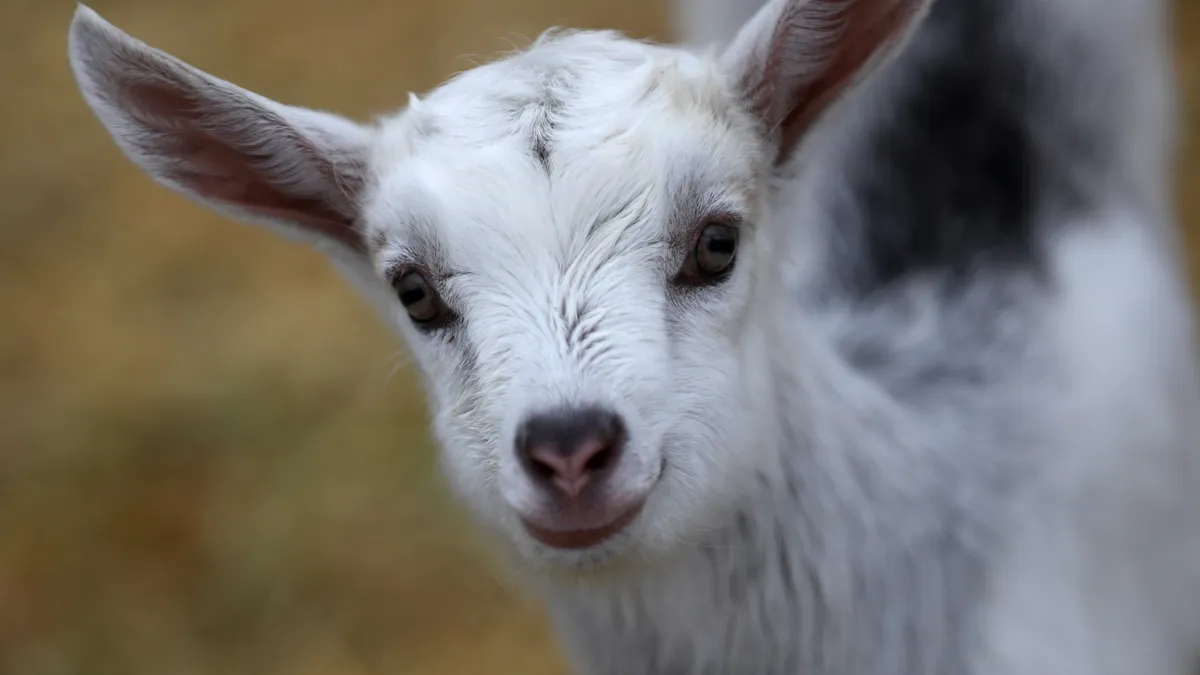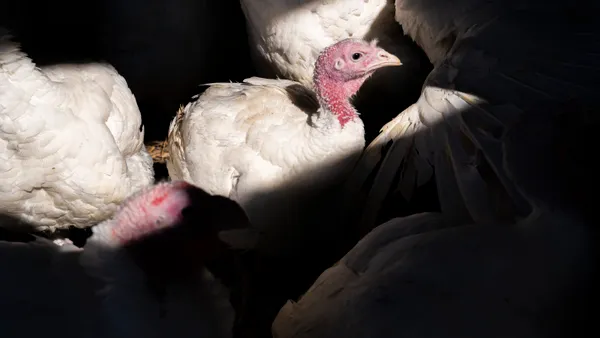Dive Brief:
- A goat on a Minnesota farm tested positive for highly pathogenic avian influenza this week, the first confirmed instance of bird flu in U.S. livestock.
- The juvenile goat resided on a farm with a backyard poultry flock that was culled after the deadly virus was detected in February, according to the Minnesota Board of Animal Health. The goat had access to the same space as the birds, including a shared water source.
- Minnesota is working with the U.S. Department of Agriculture to investigate the transmission. The detection "highlights the possibility of the virus infecting other animals on farms with multiple species,” State Veterinarian Dr. Brian Hoefs said in a statement.
Dive Insight:
While avian influenza has been detected in mammals, it typically spreads to animals that eat infected birds or poultry. The identification of the virus in a goat is the first time bird flu has been found in a U.S. domestic ruminant, which also includes cattle, sheep and their relatives.
There is limited experimental data on HPAI infection in ruminants, and there are no prior reports of natural infection in goats. While there seems to be a lower risk of the virus infecting entire herds of cattle or goats at this time, the finding could push farms with multiple types of animals to take enhanced biosecurity measures.
“Thankfully, research to-date has shown mammals appear to be dead-end hosts, which means they’re unlikely to spread HPAI further," Hoefs said.
The case was identified after the owner notified state officials of the unusual deaths of newly kidded goats on the property where avian influenza was previously identified in a poultry flock. One of the goat carcasses tested positive for H5N1 HPAI, the same virus that has devastated wild and commercial bird populations since the outbreak began in 2022.
Animals with weakened or immature immune systems are more susceptible to contracting the disease. Samples from the adult goats were negative for bird flu, and no more sick goat kids were reported since March 11.
Since the start of the outbreak, over 82 million birds have died or been killed to prevent further spread. More than 470 farms have been impacted, and the spread has also led to an increase in consumer egg prices, with costs rising 8.4% for shoppers from January to February 2024.











